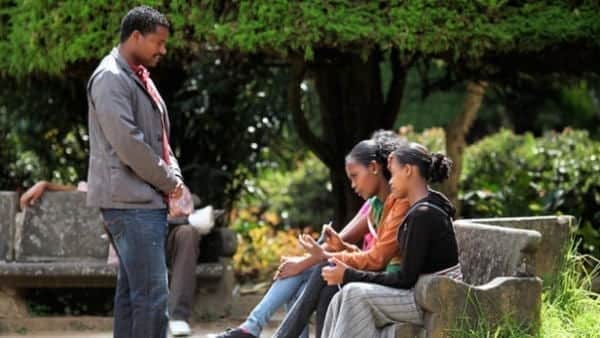
“I was able to give the young girls hope,” says Dorothy Mwawasi, reflecting upon the impact of volunteering in her home country of Kenya.
Though Mwawasi is a now a United States citizen, she is originally from Mombasa. In 2014 she spent three months as a volunteer there working with a local nongovernmental organization, Sauti ya Wanawake Pwani. She is one of 40 U.S. volunteers who have traveled overseas through the Diasporas for Development initiative, a private-public alliance between Cuso International, Accenture and the U.S. Agency for International Development.
In Mombasa, Mwawasi worked side by side with volunteers who did not have Kenyan roots, and while they all were able to provide professional expertise to the NGO to help build its service delivery capacity, Mwawasi said her impact was different because she had grown up in the region. She was able to talk to families, particularly fathers and young women, about the importance of education as an insider who understood the cultural and economic context of the region.
“Fathers said they wanted their young daughters to marry for dowry,” Mwawasi said. “But the dowry amount would only last for a year. I explained to them how much more money the family could earn if their daughters finished high school.”
Providing role models and explaining development principles within the cultural context are just two of the many benefits when members of diaspora communities return to their countries of origin to volunteer — known as diaspora volunteering.
Diaspora volunteers also take with them their fluency in the local language — which eases communication — the skills, knowledge and networks they have established in North America. This in turn facilitates “brain circulation” to offset the “brain drain” from low- and middle-income countries.
Ruth Rubio, a finance professional and DfD volunteer, returned to the Philippines, after more than 20 years in the United States to work with the Bohol Environment Management Office, a robust model forest community.
Rubio’s ability to communicate in Cebuano, the language spoken in Bohol, not only enhanced her effectiveness in her planned volunteer assignment, but she was able to reach out beyond her assigned office and make a difference in the community. She helped a small, local cooperative upgrade its billing process through a computerized system, which improved their efficiency while lessening their workload. As the cooperative’s staff did not speak English, this assistance could not have been provided by someone who did not have native language skills. In addition, Rubio has developed a connection with the cooperative and continues to mentor the organization from her home in Texas through telephone calls.
After 40 years of living abroad and a 14-year career as a program manager for a global software company in the U.S., recently retired Mesfin Felleke wanted “to spend the golden years of his life in Ethiopia.”
Felleke believed he had developed a valuable perspective through the opportunity to work and live in the U.S. and wanted to share that perspective at home. Felleke learned about DfD through his connection to the Society for Established Ethiopians in the Diaspora, a U.S.-based diaspora organization and DfD partner. As a volunteer, Felleke partnered with Mums for Mums, a local NGO that provides vocational training to marginalized women in Mekelle. Mesfin developed a deep connection to Mums for Mums and will continue to support the organization and the greater development of Ethiopia. After all, it is his country.
This continuation of his work will be achieved through Cuso International’s piloting of an e-volunteering approach, which will support volunteers to work with local NGOs in Ethiopia and elsewhere remotely while they are still in the United States.
While all international volunteers face challenges which may impact the outcomes of their assignments, the challenges encountered by diaspora volunteers are slightly different. For example, first generation diaspora volunteers returning to their country of birth may have adapted Western professional culture, which clashes with that of their country of origin. Because they speak the local language and have strong roots in the country of origin, this culture clash can be unexpected for both the volunteer and their host organization.
Alternatively, a second generation diaspora volunteer born to an immigrant community in the West may be not fluent in the language or know their origin country well, despite the expectations of their host organization. Cuso International has found that these challenges can be mitigated by deliberate discussions in predeparture training, thorough in-country orientation and by connecting the diaspora volunteer to their host organization through email and Skype prior to departure. This helps to manage expectations early in these partnerships.
International and local volunteerism encourages solidarity and connections among communities, making the ideal of a global village increasingly real. Encouraging the engagement of North American immigrant communities in the development of their countries of origin not only helps to further global linkages, but it also builds upon the cultural roots and contextual knowledge of the diaspora. This innovative approach to development truly demonstrates the value of diaspora experience in a world marked by constant transnational movements.
Learn more about Cuso International’s work engaging diaspora in development by attending one of their events in Ottawa, Ontario and Washington, D.C. during Global Diaspora Week, Oct. 12-18. For more information, check their website. To register for the event in Washington, D.C. click here.
Source-devex.com







